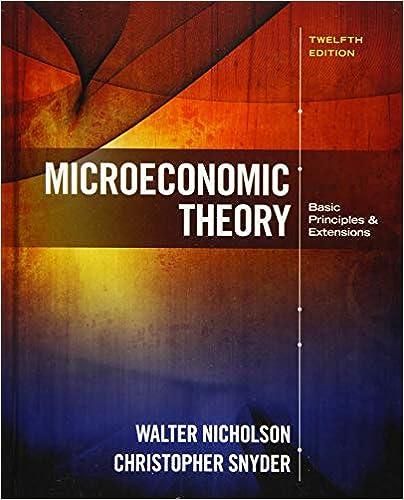Suppose that an individual consumes three goods, x1, x2, and x3, and that x2 and x3 are
Question:
Suppose that an individual consumes three goods, x1, x2, and x3, and that x2 and x3 are similar commodities (i.e., cheap and expensive restaurant meals) with p2 5 kp3, where k , 1
— that is, the goods’ prices have a constant relationship to one another.
a. Show that x2 and x3 can be treated as a composite commodity.
b. Suppose both x2 and x3 are subject to a transaction cost of t per unit (for some examples, see Problem 6.6). How will this transaction cost affect the price of x2 relative to that of x3? How will this effect vary with the value of t?
c. Can you predict how an income-compensated increase in t will affect expenditures on the composite commodity x2 and x3? Does the composite commodity theorem strictly apply to this case?
d. How will an income-compensated increase in t affect how total spending on the composite commodity is allocated between x2 and x3?
Step by Step Answer:

Microeconomic Theory Basic Principles And Extensions
ISBN: 9781305505797
12th Edition
Authors: Walter Nicholson, Christopher M. Snyder






